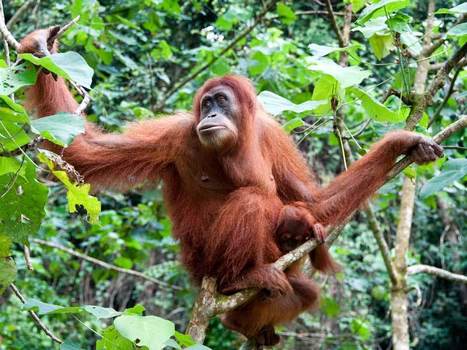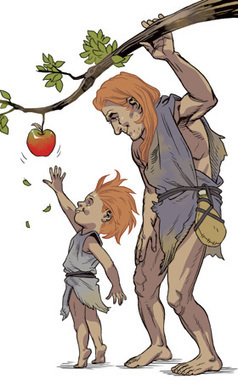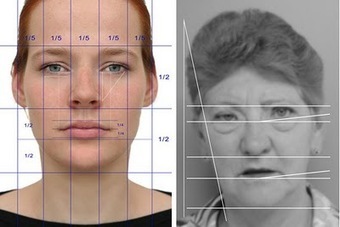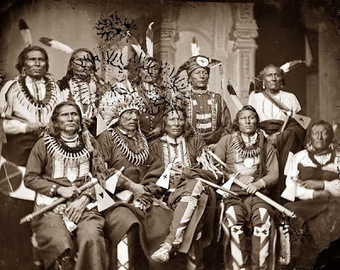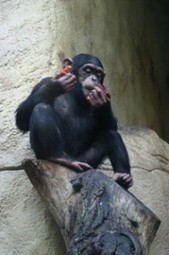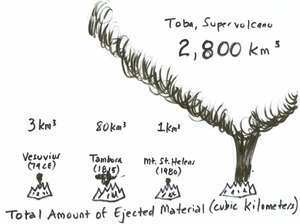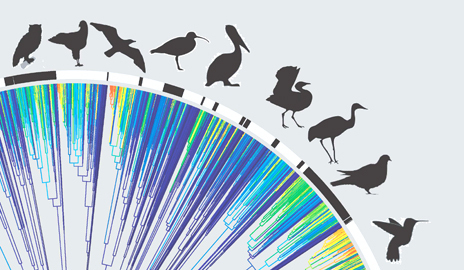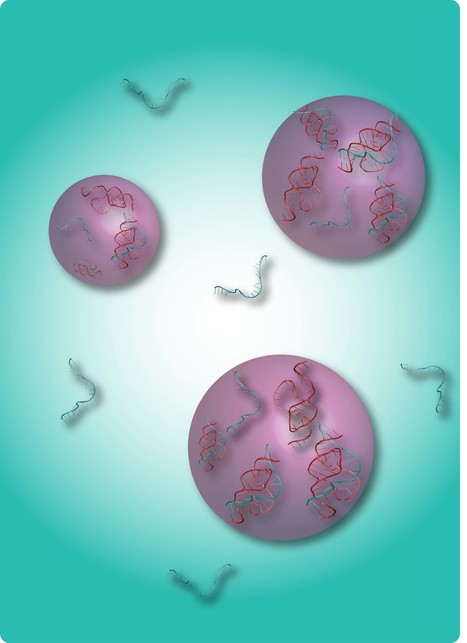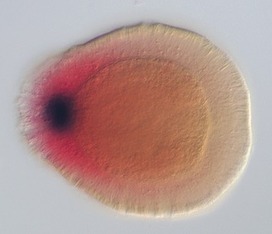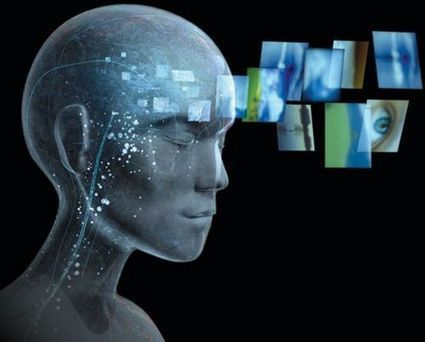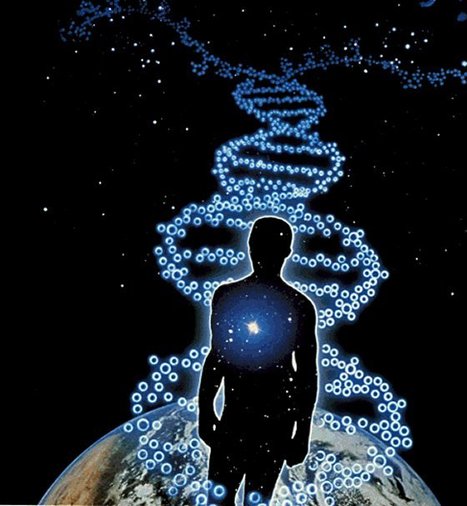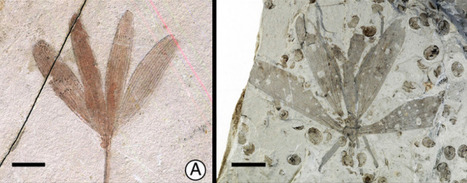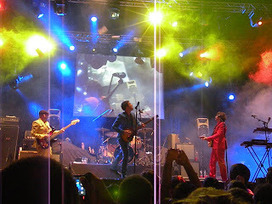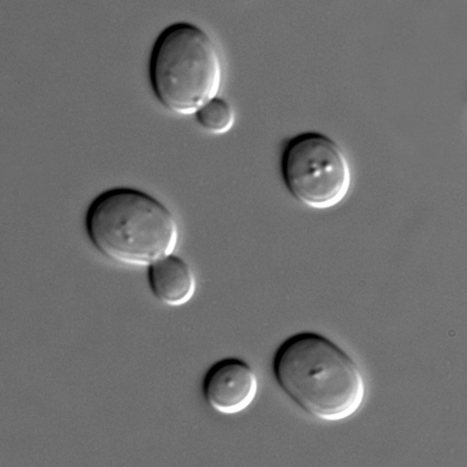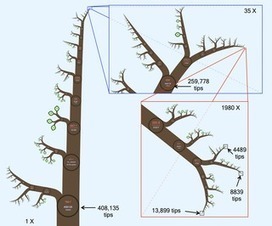Evolution skeptics argue that some biological structures, like the eye, are too complex for natural selection to explain. Biologists have proposed various ways that so-called "irreducibly complex" structures could emerge incrementally over time.
Get Started for FREE
Sign up with Facebook Sign up with X
I don't have a Facebook or a X account


 Your new post is loading... Your new post is loading...
 Your new post is loading... Your new post is loading...
Classical economic models assume that people are fully rational and selfish, while experiments often point to different conclusions. A canonical example is the Ultimatum Game: one player proposes a division of a sum of money between herself and a second player, who either accepts or rejects. Based on rational self-interest, responders should accept any nonzero offer and proposers should offer the smallest possible amount. Traditional, deterministic models of evolutionary game theory agree: in the one-shot anonymous Ultimatum Game, natural selection favors low offers and demands. Experiments instead show a preference for fairness: often responders reject low offers and proposers make higher offers than needed to avoid rejection. Here we show that using stochastic evolutionary game theory, where agents make mistakes when judging the payoffs and strategies of others, natural selection favors fairness. Across a range of parameters, the average strategy matches the observed behavior: proposers offer between 30% and 50%, and responders demand between 25% and 40%. Rejecting low offers increases relative payoff in pairwise competition between two strategies and is favored when selection is sufficiently weak. Offering more than you demand increases payoff when many strategies are present simultaneously and is favored when mutation is sufficiently high. We also perform a behavioral experiment and find empirical support for these theoretical findings: uncertainty about the success of others is associated with higher demands and offers; and inconsistency in the behavior of others is associated with higher offers but not predictive of demands. In an uncertain world, fairness finishes first.
Sakis Koukouvis's insight:
Νatural selection favors fairness.
A leading scientist says that the human phenomenon of emotional crying is hugely important and developed as a way for humans to communicate how they feel before the emergence of language. 
Eileen Marable's curator insight,
February 10, 2013 12:25 PM
Having had to work daily with people who spoke a different language I found it amazing how much is communicated just with our faces, body language and the emotions they reveal! Great post.
Even when they are very young, orangutans may start to form ideas about their world—specifically, how and when to use certain tools. That's the conclusion of a new study, which indicates that ape cultural traditions may not be that different from our own.
In a dog-eat-dog world, people still
cooperate, collaborate, and help each other out. Our species’ urge to work together has remained
an evolutionary paradox, seemingly at odds with Darwinian theory—until now.

Harry Madigan's curator insight,
October 3, 2014 9:56 PM
It was refreshing to see some optimism in this piece :). I had been trudging through so many negative articles about uncredible and unauthentic pieces, however finding this reinforced my faith.
This article explores the notion of collaboration and cooperation being a characteristic of human nature.
I found it difficult to rank this piece below "How to destroy your credibility by sacrificing Authenticity" as it is extremely informative and inspiring, yet though it is more so based on theory and ideology i feel the former source is more imperative.
Sakis Koukouvis's insight:
Sensitivity to emotion in speech prosody derives from our capacity to process music, supporting the idea of an evolutionary link between musical and language domains in the brain.
Paradox alert – the most complex organisms in nature are the best at reducing complexity. How is that? Nature tends toward symmetry through evolution. Lower organisms do not to have much symmetry, while more complex organisms usually have a symmetric body plan.
Sakis Koukouvis's insight:
Symmetry wins!
Using genetic analyses, scientists have discovered that Northern European populations—including British, Scandinavians, French, and some Eastern Europeans—descend from a mixture of two very different ancestral populations, and one of these populations is related to Native Americans.
The researchers compared the human genome to 11 other species of mammals, including chimpanzee, gorilla, mouse and rat, to find the differences between them, and found that a small piece of genetic code, a microRNA called miR-941, is unique to humans. This emerged between six and one million years ago, after humans had evolved from apes, from an evolutionarily volatile tandem repeat sequence (a repeated pattern of nucleotides)
A comprehensive analysis of the anthropological and genetic history of humans' expansion out of Africa could lead to medical advances.
Once upon a time, says Sam, around 70,000 B.C., a volcano called Toba, on Sumatra, in Indonesia went off, blowing roughly 650 miles of vaporized rock into the air. It is the largest volcanic eruption we know of, dwarfing everything else...
A Yale-led scientific team has produced the most comprehensive family tree for birds to date, connecting all living bird species — nearly 10,000 in total — and revealing surprising new details about t...
From
phys
Researchers at Penn State University have developed a chemical model that mimics a possible step in the formation of cellular life on Earth four-billion years ago. |
PLOS Biology is an open-access, peer-reviewed journal that features works of exceptional significance in all areas of biological science, from molecules to ecosystems, including works at the interface with other disciplines.
Paul Davies, a British-born theoretical physicist, cosmologist, astrobiologist and Director of the Beyond Center for Fundamental Concepts in Science and Co-Director of the Cosmology Initiative atArizona State University, says in his new book The Eerie Silence that any aliens exploring the universe will be AI-empowered machines. Not only are machines better able to endure extended exposure to the conditions of space, but they have the potential to develop intelligence far beyond the capacity of the human brain.
A research team led by biogeochemists at the University of California, Riverside has tested a popular hypothesis in paleo-ocean chemistry, and proved it false.
Here, we propose that the emergence of life may correspond to a physical transition associated with a shift in the causal structure, where information gains direct and context-dependent causal efficacy over the matter in which it is instantiated. Such a transition may be akin to more traditional physical transitions (e.g. thermodynamic phase transitions), with the crucial distinction that determining which phase (non-life or life) a given system is in requires dynamical information and therefore can only be inferred by identifying causal architecture.
Sakis Koukouvis's insight:
New thinking in how life might have arisen on a lifeless planet, by shifting emphasis to the origins of information control, rather than, for example, the onset of Darwinian evolution. Watch a lecture from Dr. Walker, one of the authors (SETI Talks): http://youtu.be/dPiI4nYD0Vg
Music is basically a strong fertility agent that is used by humans as a sign of attractiveness.
Whether you are reading in Chinese or French, the same brain areas light up.
Not the only gene that separates us from other apes, but an interesting one.
Evolutionary biologists have long wondered why cooperation remains a viable survival strategy, since there will always be others who cheat. Now, MIT physicists have found a possible answer to this question: Among yeast, cooperative members of the population actually have a better chance of survival than cheaters when a competing species is introduced into an environment.
PLOS Biology is an open-access, peer-reviewed journal that features works of exceptional significance in all areas of biological science, from molecules to ecosystems, including works at the interface with other disciplines.
Computer simulations provide new mathematical support for the “grandmother hypothesis” – a famous theory that humans evolved longer adult lifespans than apes because grandmothers helped feed their grandchildren.
Exploring the evolutionary tree of life is now as easy as navigating an online map, thanks to a new interactive website. http://www.OneZoom.org |






